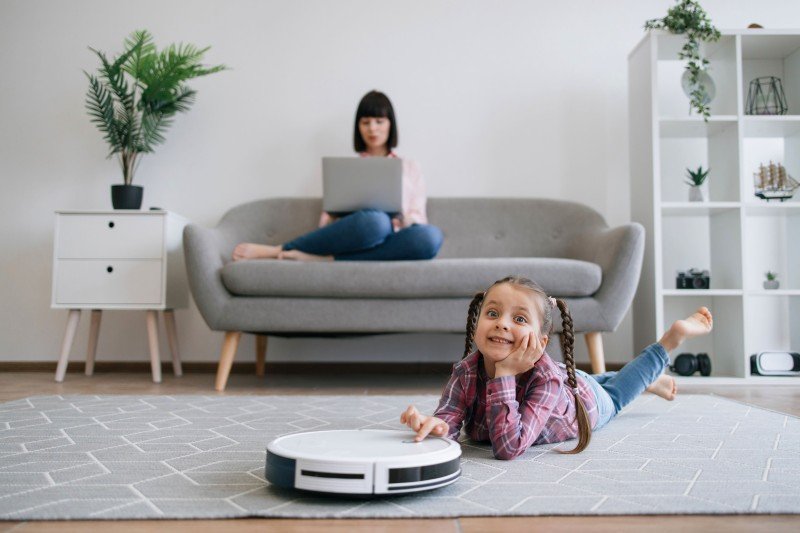Why People Don't Care About Robot Cleaner
The Rise of Robot Cleaners in Commercial Spaces
Introduction
In the last few years, advancements in innovation have actually generated automation in numerous sectors, incorporating whatever from making to client service. One notable evolution in this arena is the emergence of robot cleaners in commercial areas. These automated cleaning devices have transformed the method services approach cleanliness and upkeep, offering a solution that is not only efficient but likewise economical. As companies seek to enhance their functional performance while preserving high standards of health, robot cleaners have actually ended up being an integral part of modern-day commercial environments.
Comprehending Robot Cleaners
Robot cleaners are autonomous gadgets equipped with sensors, cameras, and expert system that enable them to navigate and clean numerous surfaces without human intervention. They come in various types and functionalities, accommodating varied commercial requirements. Here's a summary of the primary kinds of robot cleaners:
- Autonomous Vacuum Cleaners: These gadgets are created for efficiently vacuuming floors, particularly in environments such as workplaces, retail spaces, and warehouses.
- Scrubbing Robots: These robots are customized for tough surface areas, employing scrubbing and cleaning options to take on tough spots and gunk.
- Disinfection Robots: Equipped with UV-C light or chemical sprayers, these robots specialize in sanitizing areas, considerably lowering the existence of hazardous germs and infections.
Table 1: Types of Robot Cleaners and Their Features
Type of Robot Cleaner
Primary Function
Perfect Environment
Key Features
Autonomous Vacuum Cleaner
Floor vacuuming
Workplaces, Retail Spaces
Sensors for browsing obstacles, scheduling
Scrubbing Robot
Hard surface area cleaning
Warehouses, Hospitals
Dual-brush system, adjustable settings
Disinfection Robot
Surface disinfection
Healthcare settings
UV-C or electrostatic spraying technology
Benefits of Using Robot Cleaners in Commercial Spaces
The integration of robot cleaners in commercial environments offers a myriad of advantages:
Increased Efficiency
Robot cleaners operate autonomously, permitting them to tidy areas at any time of the day or night without the requirement for human guidance. This effectiveness is particularly advantageous for large centers that experience high foot traffic, as these robots can cover more ground in less time.
Consistent Cleaning Quality
Robot cleaners are created to carry out regularly, running on pre-programmed settings customized to the specific needs of the environment. This guarantees a trustworthy requirement of cleanliness throughout the center.
Cost-Effectiveness
While the initial investment in robot cleaners might be considerable, the long-lasting cost savings can be considerable. Robot cleaners minimize the requirement for a large cleaning personnel, decrease human errors, and can decrease costs related to cleaning products.
Enhanced Safety
In settings like health centers and labs, keeping hygiene is important. Robot cleaners minimize human contact with potentially hazardous products or areas, therefore boosting total security.
Eco-Friendliness
Lots of modern robot cleaners are designed with sustainability in mind. They efficiently use water and cleaning items, typically geared up with settings that minimize waste. This contributes to a greener method to cleaning in commercial areas.
Secret Considerations Before Implementation
While the benefits are considerable, businesses need to think about various elements before purchasing robot cleaners:
Space Design: The design of the center can affect a robot's efficiency. Areas with numerous challenges might require more innovative designs equipped with sophisticated navigation systems.
Upkeep: Although robot cleaners are normally low-maintenance, they do need routine checks to guarantee optimal performance. Having a dedicated technician or service agreement may be essential.
Software application Updates: The technology behind robot cleaners evolves rapidly. Keeping the software application up to date is essential for preserving functionality and security.
Combination with Current Systems: Understanding how robot cleaners can be incorporated into existing cleaning protocols is crucial to maximizing their possible advantages.
Case Studies: Successful Implementation of Robot Cleaners
Case Study 1: A Large Retail Chain
A large retail chain implemented self-governing vacuum cleaners across its many stores. The robots enabled cleaning to happen during hours of operation, which considerably minimized labor expenses and improved general store tidiness. The chain reported a 25% boost in client satisfaction, straight attributing it to the boosted shopping environment.
Case Study 2: A Local Hospital
A health center deployed disinfection robots to deal with intensive cleaning routines, especially in waiting locations and operating rooms. These robots efficiently alleviated infection dangers while permitting cleaning staff to concentrate on other pressing jobs. robot vacuum cleaners kept in mind a significant reduction in post-surgical infection rates, validating the effectiveness of robotic disinfection.
Frequently Asked Questions About Robot Cleaners in Commercial Spaces
Q1: Are robot cleaners ideal for all commercial environments?
- A: While robot cleaners are flexible, their viability might vary based upon area design and cleaning requirements. It is necessary to evaluate the particular needs and design of your commercial space.
Q2: How much do robot cleaners cost?
- A: The price of robot cleaners can vary commonly based upon their functions and abilities. robot vacuum cleaner price might begin at ₤ 1,000, while innovative designs can cost upwards of ₤ 10,000.
Q3: How frequently do robot cleaners need upkeep?
- A: Robot cleaners generally require minimal maintenance. Routine checks and software updates are advised, while parts like filters may need replacing based on usage.
Q4: Can robot cleaners work along with human staff?
- A: Yes, robot cleaners are designed to match human staff instead of replace them. They can take over routine cleaning tasks, allowing personnel to focus on more complex responsibilities.
The commercial cleaning landscape is witnessing a considerable transformation through the usage of robot cleaners. These gadgets match human effort, enhance cleanliness, and contribute to cost savings, making them a worthwhile financial investment for companies seeking to improve their operational performance. As robot vacuum cleaner sale continues to develop, the abilities of robot cleaners are likely to expand, even more strengthening their function in maintaining tidiness in commercial spaces. With cautious consideration of individual requirements and an innovative approach, organizations can accept this technology to create a cleaner, safer, and more efficient workplace.
